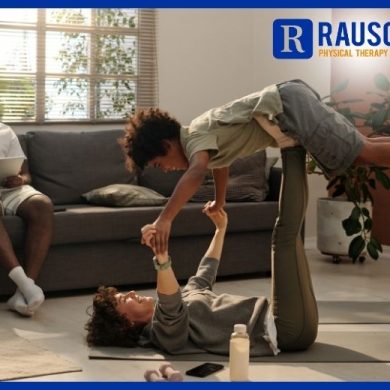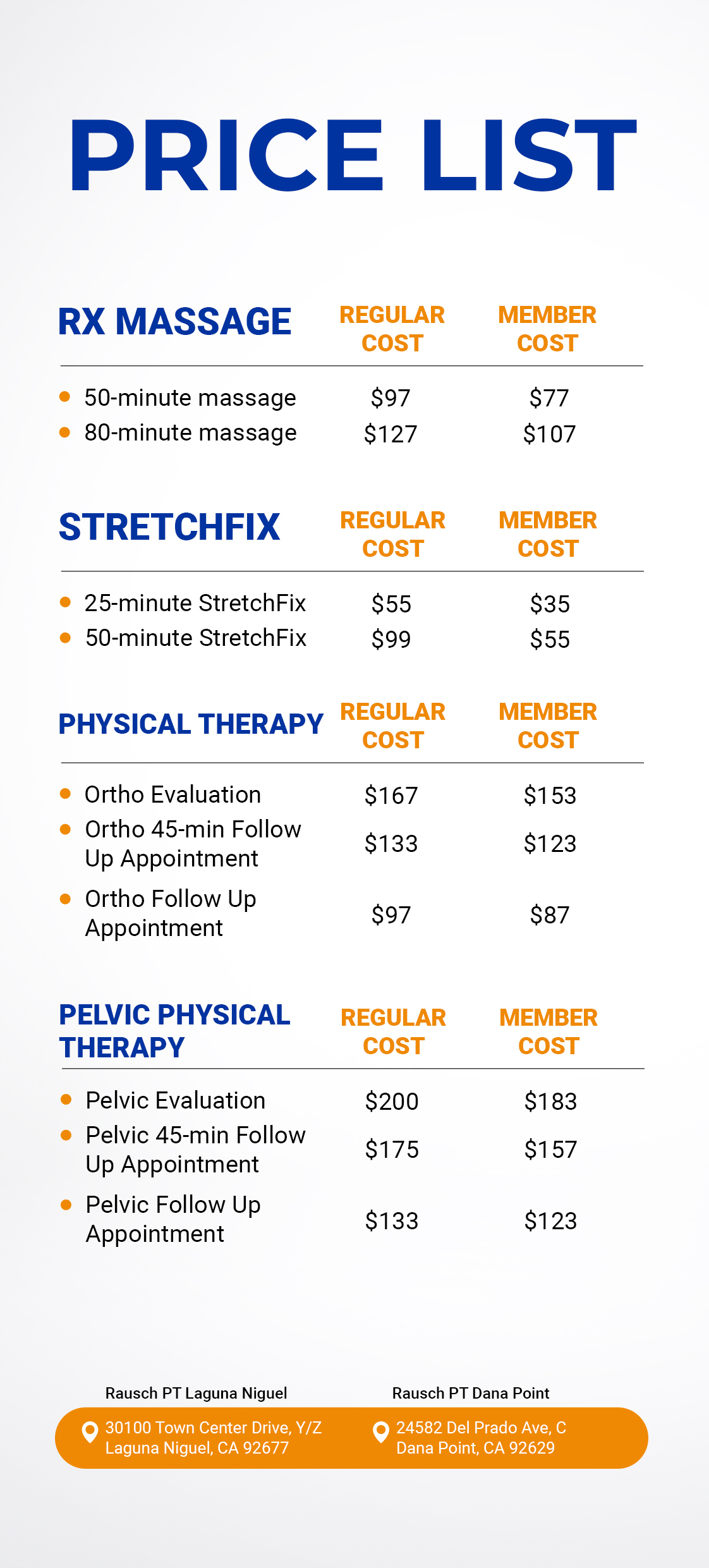1. Bring Mindfulness Into Your Day Stress and anxiety don’t just affect your mind—they impact your nervous system, sleep, recovery, and even how your body experiences pain. Mindfulness and meditation,
Best Foam Rolling Exercises for Surfers’ Shoulders
December 22, 2015 10:46 pm / Category: Sports Performance
As a licensed physical therapist, my passion is helping others. I love being able to help my patients feel better so that they can get back to doing what they love. There’s nothing better… except maybe my other passion: surfing.
I started surfing competitively at a fairly young age, and I continued through high school and college. Nothing compares to that feeling you get when you make a big turn with a good board under your feet and spray in your face. Surfing continually pushes you physically and mentally; the more physically challenging, the more rewarding it is. But with two decades of competing under my wetsuit, I know how hard it is to continuously battle those waves year after year without suffering an injury or two along the way.
So, here are some pearls of wisdom from a surfing PT to improve your paddling mechanics and minimize your risk of injury.
Common Causes of Surfing-Related Injuries
Shoulder impingement is a common injury in sports that require repetitive overhead shoulder motions, such as surfing, paddling, swimming and baseball. Restoring proper shoulder alignment is essential to reducing the risk of impingement, tendonitis and instability.
Rounded Shoulder Posture
Over time, paddling can create muscle imbalances in surfers, which often results in “Rounded Shoulder Posture.” Rounded shoulders, also known as shoulder protraction, can interfere with proper shoulder mechanics for paddling. Tight internal rotators (pecs, lats and subscapularis) limit the shoulder’s ability to externally rotate when reaching overhead to paddle. This can ultimately lead to bursitis, impingement, tendonitis and—if left unaddressed—potentially a rotator cuff tear.
Limited Thoracic Extension
Thoracic extension, or extension throughout the upper spine, is crucial to maximizing shoulder mobility and preventing joint dysfunctions in the shoulder and neck. Limited thoracic extension also contributes to Rounded Shoulder Posture and limits the range of motion us surfers need to elongate our stroke when paddling. By addressing restrictions in thoracic extension, you can improve the biomechanics of your shoulder to optimize strength and stability while paddling.
Five Foam Rolling Techniques to Improve Mobility for Paddling
The foam roller is a simple yet important piece of equipment that can be used in a variety of ways to target and stretch different muscles to help decrease the tissue tension and adhesions/knots you can get from paddling. Try these five foam rolling exercises for shoulders to help maintain flexibility, minimize Rounded Shoulder posture, and workout any knots/trigger points after a hard day of hitting the waves.
1. Foam Roll Pec Stretch and Lacrosse Ball Release
 2. Foam Rolling Thoracic Spine with Extension
2. Foam Rolling Thoracic Spine with Extension
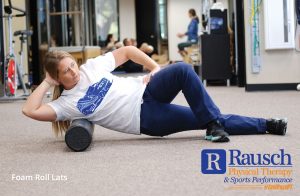
rauschpt.net | foam roll for surfers
3. Foam Rolling Lats

rauschpt.net | foam roll for surfers
4. Foam Rolling Rotator Cuff (shoulder blade)
 5. Foam Rolling Rhomboids (between shoulder blades)
5. Foam Rolling Rhomboids (between shoulder blades)
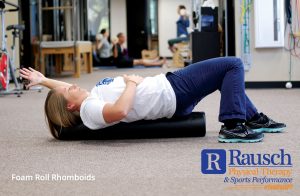
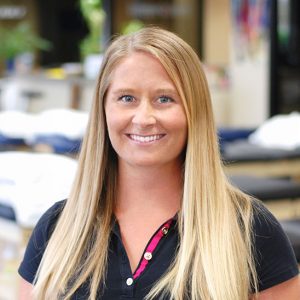
Click to learn more about Ashley and our other physical therapists »


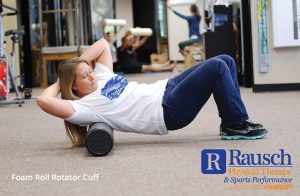 5. Foam Rolling Rhomboids (between shoulder blades)
5. Foam Rolling Rhomboids (between shoulder blades)
